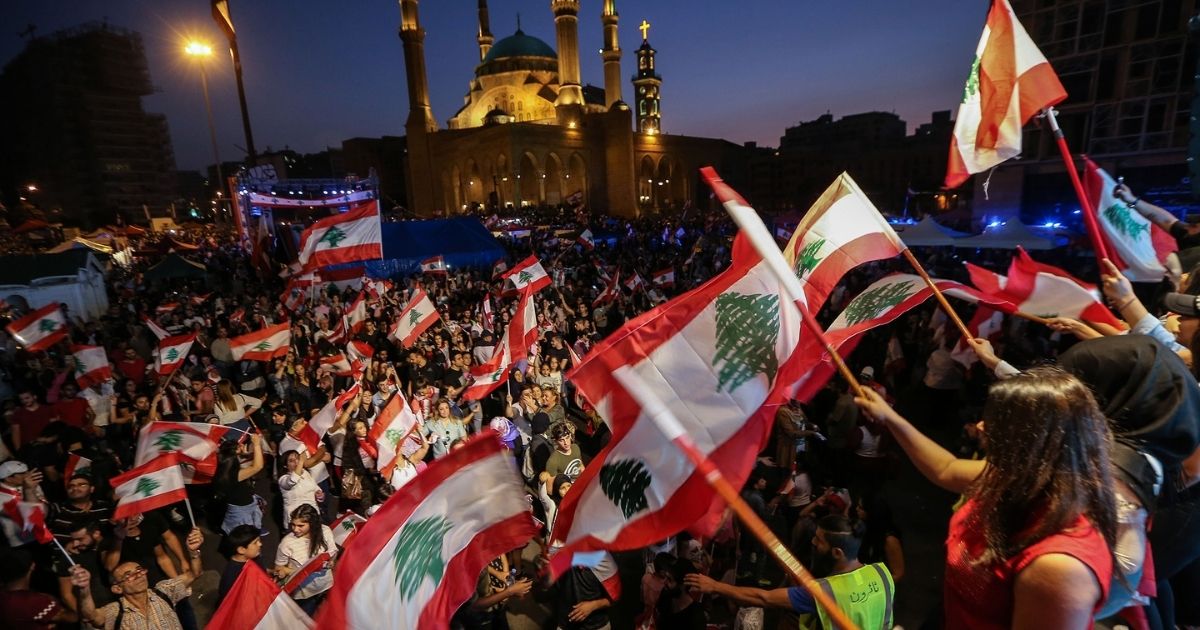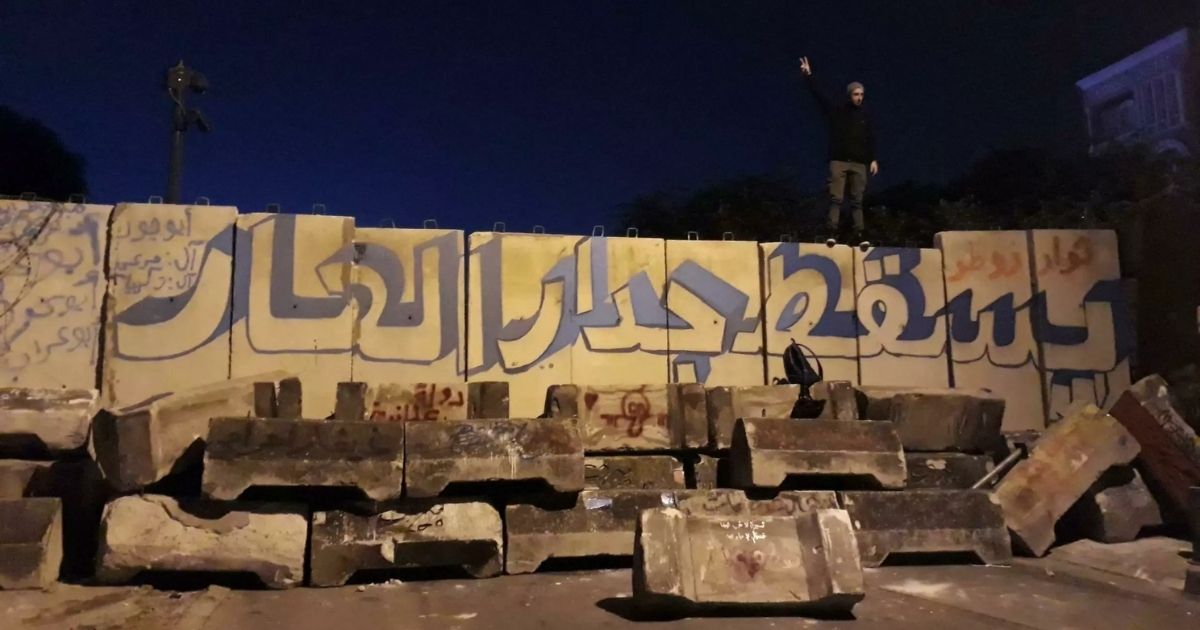Lebanese revolutionaries can’t reach the Parliament or the Council of Ministers, both located in Beirut and protected by fences, security forces, and recently a cement wall.
Their voices were only heard on social media and television broadcasts, until they started coming across politicians in public places and events, and crashing their meetings.
During a Christmas musical concert held at the Assembly Hall in the American University of Beirut 3 weeks ago, former prime minister Fouad Siniora was forced to leave the hall after heavy chants by the audience demanding him to leave.
A group of protesters recently entered a meeting held by caretaker MP Ahmad Fatfat in the Chamber of Commerce in Tripoli and made sure to drive him out of there.
And before that, a group of protesters entered the Chamber of Commerce and Industry where the caretaker MP Choucair was holding a meeting.
Lebanese revolutionaries reached a point where they can’t tolerate the speeches of current or former Lebanese politicians on TV, let alone being face to face with them.
This is also a form of pressure, making their statement loud and clear.
The statement is that those who robbed and demeaned the Lebanese people and brought their country to such a degraded situation are no longer welcomed or accepted.
In a similar scenario to the AUB incident, Lebanese revolutionaries pressured the Deputy Speaker of Parliament, Elie Ferzli, to leave a restaurant in Gemmayzeh yesterday.
Ferzli’s dinner was interrupted by chants for the revolution, coming from people dining in the restaurant as well as others outside the restaurant chanting through the glass front.
While most of the people chanted, others made noise with their plates and coffee pots, and others kindly asked him to leave, which he eventually did, escorted by security forces.
The Lebanese people are taking actions at any chance they get to express their disproval and rejection of current and former politicians.
They are holding them all liable for leading or allowing the country to crumble under their responsibility. Their motivation to express themselves is shown on a daily bases.
These incidents appear to be the start of an exponential trend. The people are getting frustrated to be ignored in their protests that will soon hit three months.
All that they want is to be heeded by the ruling class holding the fate of the country in their hands; a country that belongs democratically more to the people than to the ruling class.

















